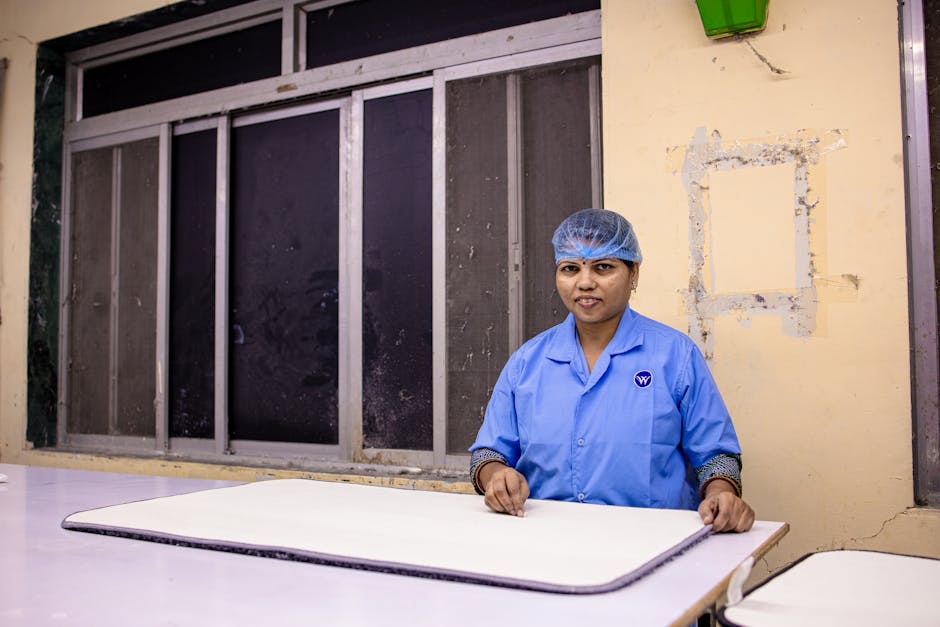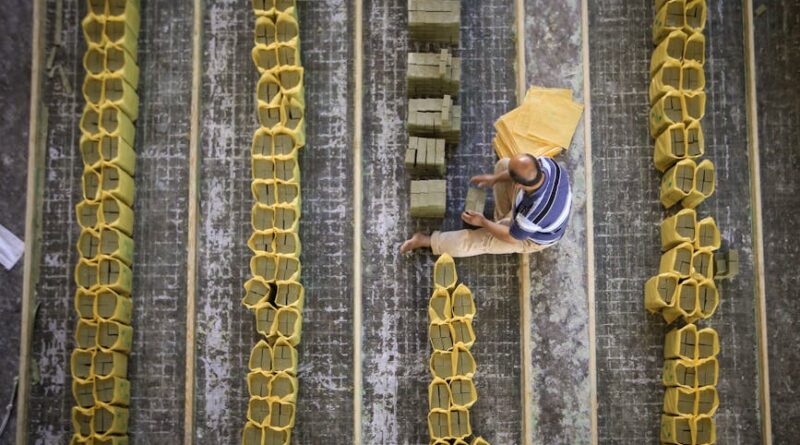Exploring Responsible Manufacturing Trends
When we think about manufacturing, we often picture large factories churning out products at a rapid pace. However, the landscape of manufacturing is evolving, with a growing emphasis on responsible practices. From sustainable sourcing to ethical labor conditions, responsible manufacturing trends are reshaping the industry. In this article, we will delve into the various aspects of responsible manufacturing trends, exploring their significance, impact, and future implications.
The Rise of Responsible Manufacturing

In recent years, there has been a noticeable shift towards responsible manufacturing practices. This shift can be attributed to a variety of factors, including increased consumer awareness, regulatory pressure, and the growing importance of corporate social responsibility. Companies are realizing that adopting responsible manufacturing practices not only benefits the environment and society but also enhances their reputation and bottom line.
Sustainable Sourcing

One of the key pillars of responsible manufacturing is sustainable sourcing. This involves ensuring that raw materials are obtained in an environmentally friendly and socially responsible manner. Companies are increasingly looking to source materials from suppliers who adhere to sustainable practices, such as using recycled materials, minimizing waste, and reducing carbon emissions. By prioritizing sustainable sourcing, companies can reduce their environmental impact and support ethical supply chains.
Energy Efficiency

Another important aspect of responsible manufacturing is energy efficiency. Manufacturing processes can be energy-intensive, leading to high carbon emissions and environmental degradation. To address this issue, companies are investing in energy-efficient technologies and practices to reduce their carbon footprint. By optimizing energy usage and implementing renewable energy sources, manufacturers can lower their operating costs and contribute to a greener future.
Waste Reduction

Waste reduction is a critical component of responsible manufacturing. Excessive waste not only harms the environment but also represents a loss of valuable resources. Companies are implementing waste reduction strategies such as recycling, reusing materials, and adopting circular economy principles to minimize waste generation. By prioritizing waste reduction, manufacturers can improve efficiency, reduce costs, and create a more sustainable production process.
Labor Practices
Responsible manufacturing also encompasses ethical labor practices. Ensuring fair wages, safe working conditions, and respect for workers’ rights are essential aspects of ethical manufacturing. Companies are increasingly scrutinized for their labor practices, with consumers demanding transparency and accountability. By upholding ethical labor standards, manufacturers can build trust with consumers and create a positive work environment for their employees.
Transparency and Traceability
Transparency and traceability are becoming central tenets of responsible manufacturing. Consumers are increasingly interested in knowing the origins of the products they purchase and the processes involved in their production. Companies are leveraging technologies such as blockchain to provide greater transparency and traceability in their supply chains. By offering visibility into their operations, manufacturers can build trust with consumers and demonstrate their commitment to responsible practices.
Regulatory Compliance
Regulatory compliance plays a crucial role in driving responsible manufacturing practices. Governments around the world are enacting laws and regulations to promote sustainability, ethical sourcing, and worker safety. Manufacturers must stay abreast of these regulations and ensure compliance to avoid fines, reputational damage, and legal repercussions. By adhering to regulatory requirements, companies can demonstrate their commitment to responsible manufacturing and uphold their social license to operate.
The Future of Responsible Manufacturing
As responsible manufacturing trends continue to gain momentum, the future of the industry looks promising. Companies that embrace sustainable practices, ethical sourcing, and transparent operations are poised to thrive in an increasingly conscious consumer market. By prioritizing responsible manufacturing, companies can not only reduce their environmental impact but also enhance their competitiveness and resilience in the long run.
Conclusion
To wrap things up, responsible manufacturing trends are reshaping the industry, emphasizing sustainability, ethics, and transparency. From sustainable sourcing to ethical labor practices, manufacturers are adopting a holistic approach to responsible manufacturing. By prioritizing sustainability, energy efficiency, waste reduction, and ethical labor practices, companies can create value for society, the environment, and their bottom line. As consumers continue to demand responsible products and practices, responsible manufacturing is not just a trend but a necessity for companies looking to thrive in the 21st century.
As we look towards the future, it is clear that responsible manufacturing will play a pivotal role in shaping the industry’s trajectory. By embracing responsible practices and staying ahead of regulatory requirements, manufacturers can position themselves as leaders in sustainability and ethics. The journey towards responsible manufacturing may be challenging, but the rewards are significant a greener planet, happier communities, and a more sustainable future for all.




